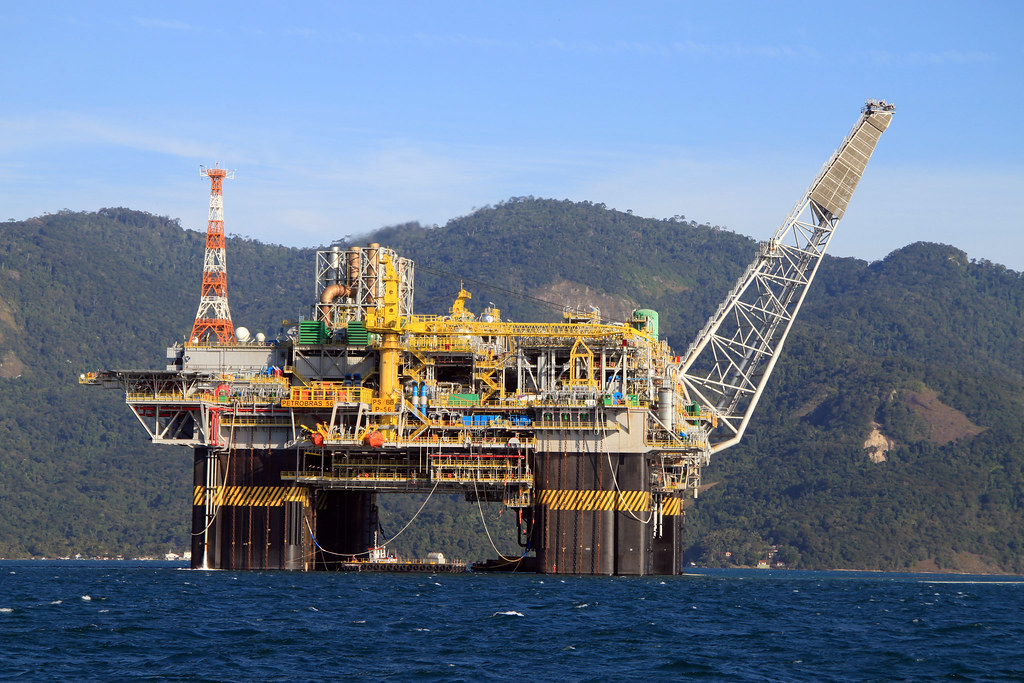
In recent years, geopolitical tensions in the Middle East have significantly impacted global markets, and one of the most intriguing indicators of these tensions has been the performance of Petrobras, Brazil’s state-controlled oil company. The fluctuations in Petrobras’ stock prices have increasingly been viewed as a “thermometer”—a barometer—reflecting the complex and volatile dynamics of the Iran-Israel-U.S. conflict. But why has Petrobras, a Brazilian company, become so closely linked to events in the Middle East? To understand this phenomenon, we need to explore the interconnectedness of global oil markets, geopolitical risks, and Brazil’s economic and strategic positioning.
The Central Role of Oil in Global Politics
Oil remains a critical resource for the global economy, underpinning everything from transportation to manufacturing. The Middle East, especially Iran and Israel, plays a pivotal role in the global oil supply chain. Iran is one of the world’s largest oil producers, and any conflict involving Iran often threatens to disrupt oil exports from the region. Similarly, tensions involving Israel and the United States—key players in Middle Eastern geopolitics—can escalate quickly, affecting global oil prices.
When geopolitical tensions rise, especially in such a volatile region, oil prices tend to spike due to fears of supply disruptions. Investors and markets respond not only to actual events but also to potential risks, leading to increased volatility in oil-related assets. This is where Petrobras, as one of the largest publicly traded oil companies in Latin America, becomes a barometer of sorts. The company’s stock performance often mirrors the market’s expectations regarding Middle Eastern stability and global oil supply concerns.
Petrobras and Its Exposure to International Oil Markets
Petrobras’ operations are deeply intertwined with the international oil market. As a major producer and exporter of oil, its financial health is highly sensitive to fluctuations in crude oil prices. When tensions in the Middle East escalate, the expectation of rising oil prices can boost Petrobras’ revenues and stock value. Conversely, periods of relative calm often lead to decreased oil prices, impacting Petrobras negatively.
Furthermore, Petrobras is heavily influenced by international political developments because of its reliance on global oil markets. Its stock is traded on the New York Stock Exchange (NYSE) and other international platforms, making it more susceptible to global geopolitical currents than some other regional companies. Investors worldwide monitor Petrobras’ stock as a reflection of broader market sentiment concerning Middle Eastern conflicts.
The Iran-Israel-U.S. Tensions and Their Impact on Oil Markets
The Iran-Israel-U.S. triangle has historically been a hotbed of tension, with conflicts often spilling over into the global arena. U.S. sanctions on Iran, military skirmishes, or diplomatic escalations can lead to fears of oil supply disruptions. For instance, the U.S. withdrawal from the Iran nuclear deal in 2018 and subsequent sanctions led to increased tensions and concerns over Iranian oil exports.
Similarly, military activities or threats against Iran or Israel can cause oil prices to surge. These price movements are often reflected in the stock prices of energy companies worldwide, including Petrobras. When investors anticipate higher oil prices due to geopolitical instability, Petrobras’ stock tends to rise accordingly. Conversely, easing tensions or diplomatic breakthroughs can lead to a decline in oil prices and, subsequently, Petrobras’ stock.
Petrobras as a Proxy for Market Sentiment
Because of its significant exposure to oil prices and its international investor base, Petrobras has become a proxy—an indicator—of global risk appetite relating to Middle Eastern conflicts. Analysts and investors watch Petrobras’ stock movements as a real-time gauge of how markets interpret the risk of conflict escalation in the region.
For example, during periods of heightened Iran-Israel-U.S. tensions, Petrobras often experiences increased trading volume and volatility. Sharp upward movements can indicate that investors are pricing in potential disruptions to oil supplies. Conversely, stabilization or de-escalation in the region can lead to subdued or declining Petrobras stock prices.
Broader Implications and Strategic Considerations
Recognizing Petrobras as a “thermometer” for Middle Eastern conflicts underscores the interconnectedness of geopolitics, energy markets, and regional economies. For Brazil, these dynamics have significant implications. As an emerging economy with substantial oil interests, Brazil’s economic stability can be affected by shifts in global oil prices driven by geopolitical events.
Moreover, Petrobras’ role extends beyond mere market reactions. The company is also an instrument of Brazil’s energy policy and international economic strategy. Its performance during times of geopolitical tension can influence national economic policies and investor confidence in Brazil.
The Future of Petrobras as a Geopolitical Indicator
Looking ahead, the relationship between Petrobras’ stock and Middle Eastern conflicts is likely to persist, given the ongoing strategic importance of oil. As global energy transition accelerates, the dynamics may shift, but for now, Petrobras remains a critical indicator of how geopolitical risks translate into market movements.
Investors and analysts will continue to monitor Petrobras in conjunction with geopolitical developments, especially in the Middle East, to gauge the potential for supply disruptions and price volatility. This relationship exemplifies the globalized nature of energy markets and how regional conflicts can resonate worldwide, affecting companies far from the conflict zones.
Conclusion
In summary, Petrobras has become a “thermometer” for the Iran-Israel-U.S. conflict because of its exposure to international oil markets, its sensitivity to geopolitical risk, and its status as a major global energy company. The fluctuations in Petrobras’s stock prices serve as real-time indicators of market sentiment regarding Middle Eastern stability and potential supply disruptions. As geopolitical tensions continue to evolve, Petrobras’s role as a barometer highlights the deep interconnectedness of regional conflicts and global economic health, emphasizing the importance of understanding these complex relationships for investors, policymakers, and markets worldwide.
